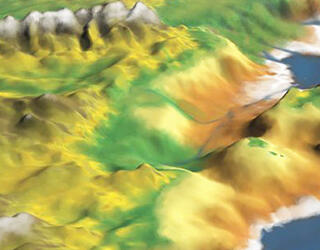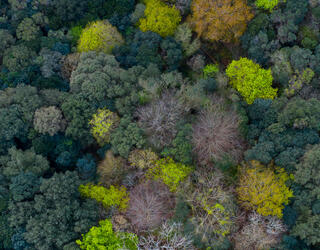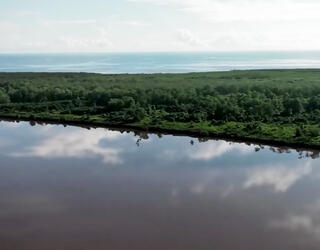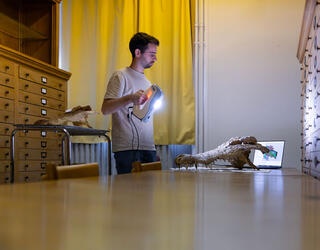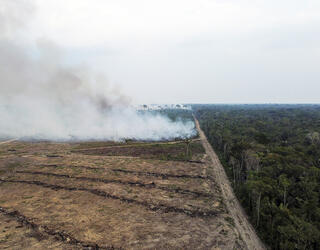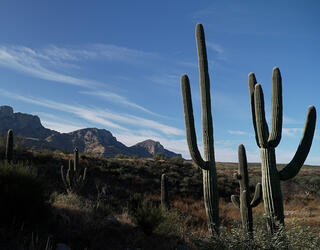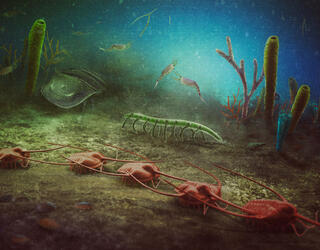Mycoses resistant to antifungal drugs are on the increase. Not least because treatments against pathogenic fungi are used in agriculture as well as in human and animal health.
Article
04.10.2025
Alaska is hit hard by climate change. The subsequent rise in temperatures causes permafrost to degrade. Without this underground layer of ice that acts as a cement, mountain slopes become fragile. This video takes you to the field to study the Alaskan soil...
Video
04.09.2025
At the Musée de l’Homme anthropology museum in Paris, an exhibition traces the movements of Homo sapiens across the long history of humanity. To address this complex topic, often the subject of fanciful representations, the scientific curators approached it...
Article
03.27.2025
Our topics
03.19.2025
How to measure the dislocation of ice floes, the immense expanses of ice floating in polar seas? Easy! Create a model of the ice pack, find the best way to shake it, and watch as it breaks under the...
03.18.2025
Over the past few months, our planet has been ìmpacted by intense solar flare activity on the Sun. This phenomenon, which caused the polar auroras that recently lit up European skies, could also...
12.06.2024
Over 5 million years ago, the Mediterranean Sea dried up, giving way to a salt flat stretching as far as the eye could see. A look back at the Mediterranean basin’s last great hydrological crisis.
Slideshow
12.04.2024
As indicators of the degradation of permafrost – permanently frozen soil – in mountainous areas, molards are receiving special focus from researchers. In his laboratory in Caen (northwestern France...
11.13.2024
Small or large, equipped with rotors or fixed wings, drones are gradually becoming part of daily life for CNRS scientists. They offer invaluable help, making it possible to see what was heretofore...
07.30.2024
Forests cover a third of the world's land surface. Although they provide us with invaluable services, they are now under so much pressure that we are faced with our own contradictions between...
Video
06.28.2024
Each year, some 40 billion tonnes of CO₂, one of the main greenhouse gases, are released into the atmosphere. A significant proportion of these is captured by the oceans, vegetation and the soil....
Video
05.30.2024
Off the coast of the Sicilian town of Catania, an oceanographic mission studied the activity of North ALFEO, a submarine fault discovered only a decade ago. In partnership with the French daily...
04.26.2024
A massive asteroid struck the Earth 66 million years ago, dramatically affecting marine and terrestrial environments, and causing the mass extinction of numerous animal and plant species. The...
04.18.2024
On our planet, everything is interconnected, from terrestrial and marine ecosystems and biodiversity to ice sheets, rivers and oceans. But a recent report reveals that the dynamics of these different...
04.15.2024
The American Wild West, and especially Arizona, is not just cactuses, mountains and golden plains. Its dramatic landscapes are also audible. Anne Sourdril, a CNRS anthropologist, and her...
02.28.2024
A newly-discovered fossil deposit in the foothills of the Montagne Noire range in southern France has yielded unprecedented evidence of marine biodiversity from half a billion years ago.







